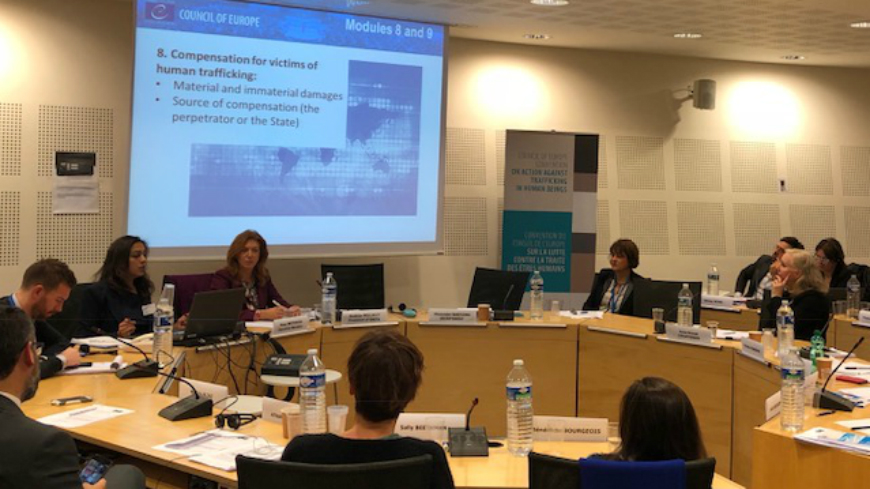On 21-22 November 2018, the Council of Europe Anti-Trafficking Division organised a meeting of specialised lawyers and NGOs providing legal assistance to victims of trafficking in human beings, following up on the first such meeting organised in November 2016, in co-operation with the Netherlands Helsinki Committee.
The meeting brought together 37 participants from 21 States Parties to the Council of Europe Convention on Action against Trafficking in Human Beings, who discussed experiences in the provision of legal assistance to victims of trafficking at different stages (identification as a victim of trafficking, access to assistance and residence permits, asylum procedure, court proceedings, compensation claims, application of the non-punishment provision).
Siobhán Mullally, President of the Group of Experts on Action against Trafficking in Human Beings (GRETA), presented GRETA’s monitoring findings from the 2nd evaluation round and the questionnaire for the 3rd evaluation round of monitoring the implementation of the Convention by GRETA, with a thematic focus on “Access to justice and effective remedies for victims of human trafficking”. Ksenija Turković, Judge of the European Court of Human Rights, and Thomas Straub, Registry Lawyer, made presentations on the case law of the European Court of Human Rights related to trafficking in human beings.
Moreover, the new online course on human trafficking developed by the European Programme for Human Rights Education for Legal Professionals (HELP) of the Council of Europe was introduced to participants by one of the authors of the course, Parosha Chandran, human rights barrister and Professor of Modern Slavery Law at King’s College, London.
Participants made concrete proposals for improving access to justice for trafficked persons, including by setting up a European network of trafficking victim lawyers which would enable the exchange of information on case law and legal strategies, support training, encourage strategic litigation and facilitate co-operation in transnational cases.




